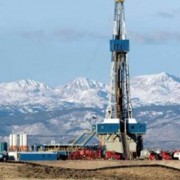Is Fracking a health hazard?
Fracking, or hydraulic fracturing, is the process of extracting natural gas from shale rock deep within the earth. The gas is released by using a high-pressure water and chemical mixture that is directed at the rock to release the gas inside allowing it to flow out to the head of the well.
Recent evidence from a National Academy of Sciences study has come to show that fracking may contaminate drinking water, adding to the controversy surrounding the method of natural gas extraction.
The concern is that potentially carcinogenic chemicals used in the fracking process may contaminate groundwater around the fracking site.
Duke University researchers analysed 141 drinking water samples from water wells across the gas-rich Marcellus shale basin in northeastern Pennsylvania.
The research found propane in 10 samples, methane concentrations six times higher and ethane concentrations 23 times higher at homes within a kilometre of a shale gas well.
With no biological sources of ethane or propane in the region to explain the samples sizes apart from the fracking it suggests that drilling has affected the water table. Two previous studies by Duke scientists found direct evidence of methane contamination in water wells near shale-gas drilling sites in the same area.
In the USA fracking has led to a massive expansion of natural gas production but has been banned in many other countries such as France, Luxemburg and Bulgaria because of the environmental impact of the process.
The question has to be how far from a fracking well do you have to be before you feel safe drinking the water?



